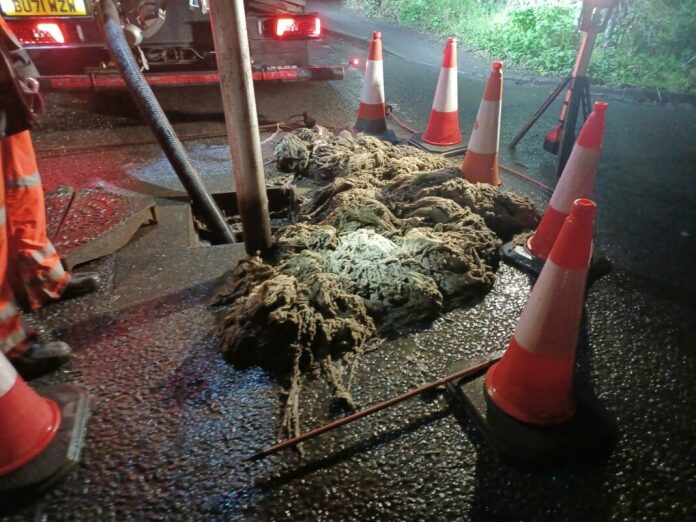Flushed wet wipes caused a big sewer blockage in Highbridge that ‘put homes and the environment at a risk of pollution’, Wessex Water has said this week.
Crews from Wessex Water had to use jetting equipment to clear the mass of wipes from a 400-metre stretch of sewer, located close to the Forge Rhyne watercourse.
There are around 13,000 blockages on the company’ public sewer network every year, costing £5 million to resolve, and most are caused by wet wipes being wrongly flushed down toilets.
Wipes end up in rivers and seas, putting wildlife at risk, and they are one of the leading causes of fatbergs that clog up sewers and lead to flooding in houses, gardens and businesses.
A Wessex Water spokesperson said: “We’ve been in touch with properties in the area of the blockage in Highbridge to offer advice on keeping sewers clear.”
“Even if it says ‘flushable’ on the packaging, wet wipes really belong in the bin.”
“Like sanitary products, they often contain plastic and don’t break down like regular toilet paper – blocking pipes and contributing to storm overflow discharges.”
“So remember, only flush the three Ps – paper, poo and pee – to help avoid the misery and expense of sewage in your home.”
New research by Water UK has found that 22% of people admit to flushing wipes, with men and 18 to 24-year-olds apparently the worst offenders.
Wessex Water has long campaigned for clearer ‘do not flush’ labelling and has lobbed the government, manufacturers and supermarkets to take the lead. For more information, see wessexwater.co.uk/stop-the-block







